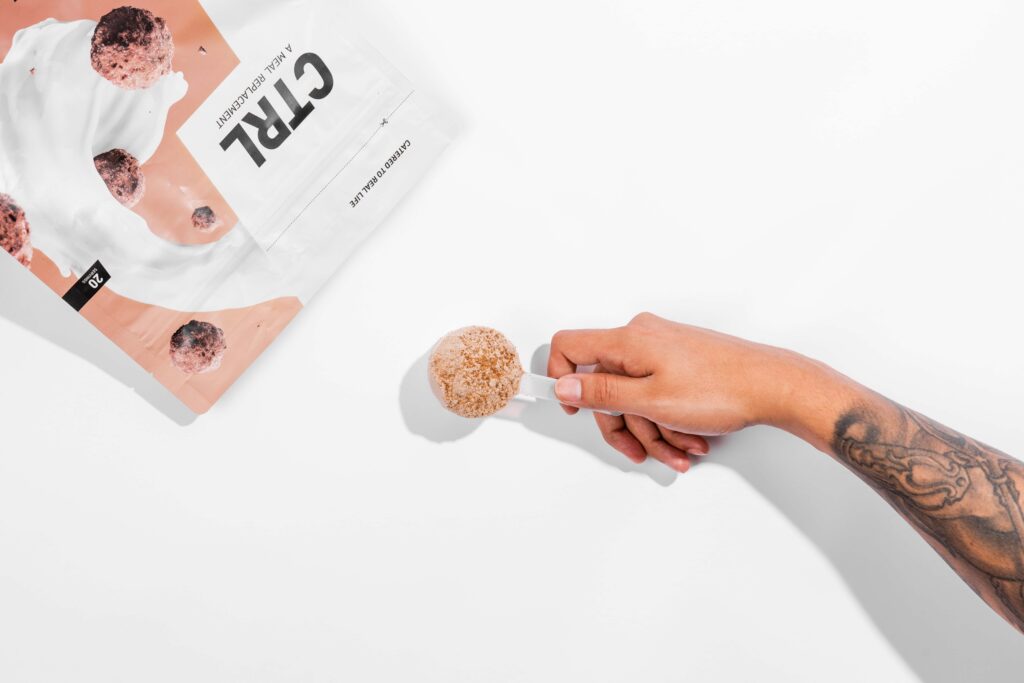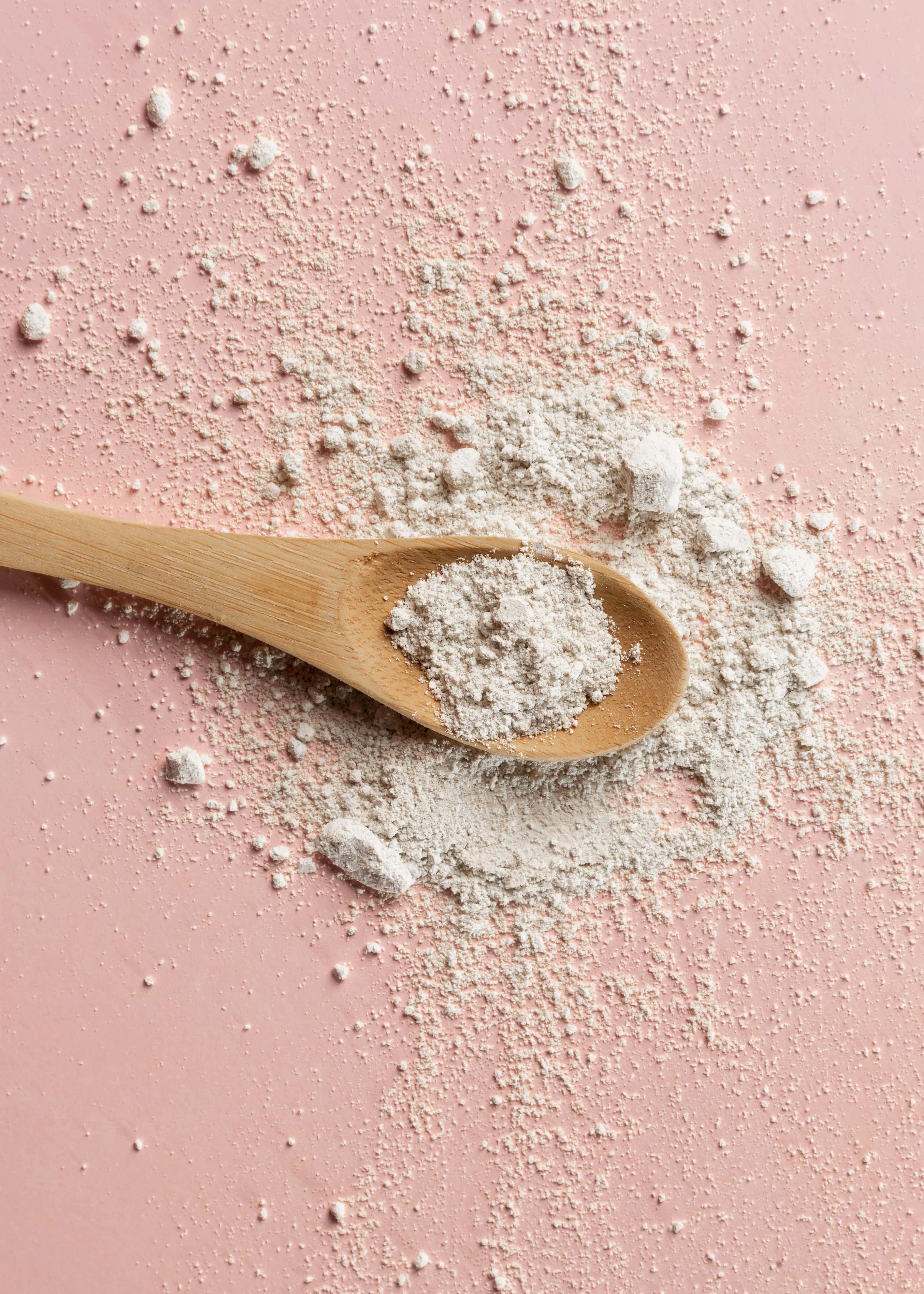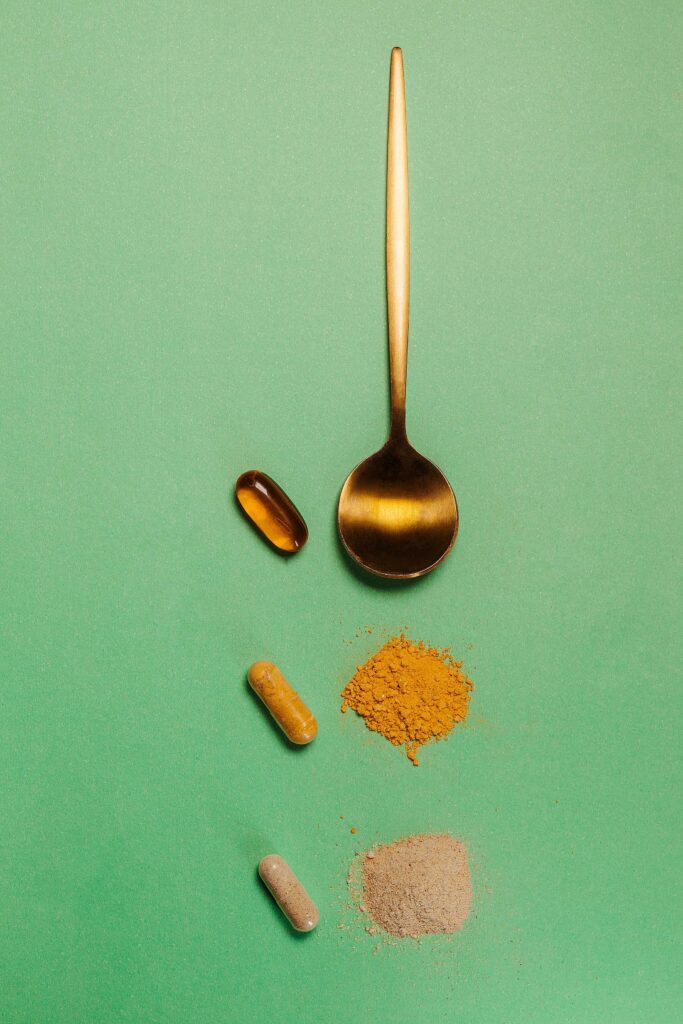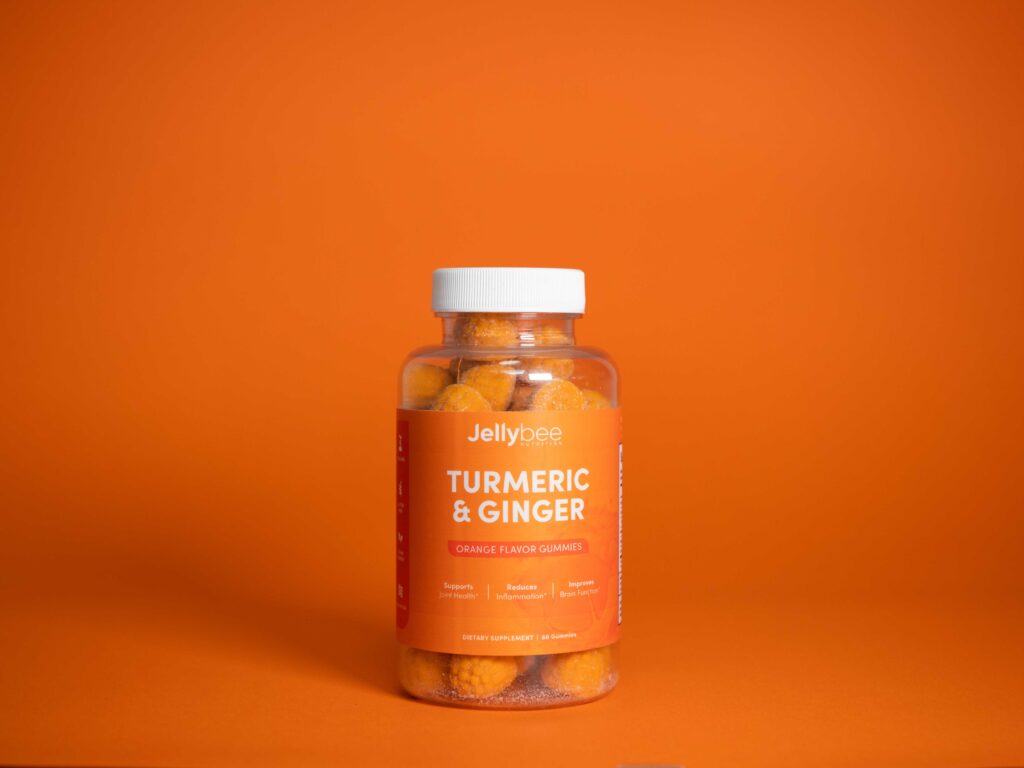Are you tired of feeling like you can’t walk or move after every workout? Having sore muscles will keep you from reaching your fitness goals as you’ll be less likely to train and instead opted for a rest day. But fear not, there is a surprising little solution! In fact there’s 7 of them! Supplements can help with faster muscle recovery and supercharge your workouts!
In this article, i’ll some shed light on the overlooked supplements that can help you achieve better recovery and therefore get more from your workouts! So let’s get into it: 7 surprising muscle recovery supplements!

Protein Supplements
Protein is an essential nutrient for the building block of muscle recovery. Its importance cannot be overstated! Protein is used by the body to repair and grow muscle, making it a crucial component of any post-workout regimen.
When we exercise, our muscles undergo stress and microscopic damage. Protein helps to repair this damage, promoting muscle recovery and reducing soreness. It also plays a key role in muscle protein synthesis, the process by which new muscle proteins are created. By consuming enough protein after a workout, you can maximise this synthesis and support the growth and repair of your muscles.

How Much Protein Should I Take?
It does depend on your goals but it is recommend that Adult women should be consuming 0.75/kg of body weight per day whilst adult men should be consuming 0.84kg of body weight per day.
How To Take Protein
Protein is one of the easiest nutrients to consume, as it is found naturally in many food sources.
Food sources that are rich in protein include:
- Lean meats: chicken and turkey are excellent options (also rich in essential amino acids)
- Fish
- Eggs
- Dairy products: Greek yogurt and cottage cheese are excellent options.
- Legumes: lentils, chickpeas and black beans.
- Tofu
- Tempeh
If you eat a varied diet then consuming protein rich food sources is easy. For those following a plant-based diet, there is an abundance of plant based protein which ensures you wont be missing out on meeting your protein needs!
If you need an extra protein boost throughout the day then the quickest, easiest and most efficient way is to supplement it using protein powders or bars. You can easily drink protein powder as a shake, mix it into a smoothie or yogurt or even bake with it. Check out some of my best protein recipes here! A protein bar can easily chucked into you bag as a little snack through out the day!
Some of my favourite protein supplement brands that I would recommend are:
- Genetix Nutrition: In particular their double chocolate flavour.
- B Raw: Plant based. Try the salted caramel flavour.
- Smart Protein Bar: All the flavours are pretty good but mango cream is probably my favourite!
Protein timing
Im not going to go into too much detail about protein timing in this article. If you want to know more about it the check out my article dedicated to it here!
Too quickly summarise it: Consuming protein within the first few hours after a workout can enhance its effectiveness in repairing and rebuilding muscle tissue. Aim to consume protein within this post-workout window to optimize muscle recovery.
But if timing when your eating protein sounds a bit too full on then don’t worry, just make sure your eating enough protein throughout the day and you’ll muscles will still thank you for it!
Creatine Supplements
Creatine is a widely used and scientifically supported supplement that can significantly enhance athletic performance and muscle recovery.
This substance is a naturally occurring compound found in small quantities in certain foods such as; red meat and seafood. However, the amounts are too small to experience the full benefits so many athletes and fitness enthusiasts turn to creatine supplements.
When taken as a supplement, creatine is rapidly absorbed into the muscles, where it plays a crucial role in energy production.
One of the primary benefits of creatine is its ability to increase the production of adenosine triphosphate (ATP), the primary source of energy for muscle contractions. By boosting ATP levels, creatine can provide the muscles with a quick and easily accessible energy source, allowing you to push harder during intense workouts or training sessions. Creatine has been shown to enhance muscle strength, power, and overall performance in activities that require short bursts of intense effort, such as weightlifting, sprinting, and jumping.
This supplement not only helps with performance but also speeds up muscle recovery, allowing you to bounce back faster and train more frequently. It has also been found to support muscle growth and improve body composition.

How Much Creatine Should I take?
Research suggests that a daily creatine intake of 3-5 grams is sufficient.
Will I Gain Weight Taking Creatine?
I honestly hate this question because so many people have been told (including myself) that creatine will make you gain weight and are now scared to take it. So let get the facts straight. Your weight may increase by a tiny amount due to increased water retention in the muscles but will you look visibly bigger? No. Does it make much of a difference? No. Do people freak out about it? Yes. This so called ‘weight gain’ reflects improved muscle hydration so it’s definitely not something to be scared of!
How To Take Creatine
Creatine is normally a white and tasteless powder. I usually just add it into my protein smoothie. It’s super easy to mix in with other foods as it’s such a tiny daily amount.
I buy my creatine powder here!
BCAAs Supplements (Branch-Chain Amino Acids)
BCAAs are a group of essential amino acids that play a crucial role in muscle synthesis and reducing muscle breakdown. They are a weapon against beating muscle fatigue.
When we exercise, our muscles undergo stress and fatigue, resulting in tiny micro-tears. These micro-tears, although a natural part of the muscle-building process, can lead to soreness and a longer recovery time. BCAAs can help counteract these effects by stimulating protein synthesis, the process by which new muscle tissue is repaired and built.
Research has shown that BCAAs can significantly reduce muscle soreness and fatigue, allowing for faster recovery and better overall performance.
In addition to their muscle recovery benefits, BCAAs also serve as a source of energy during workouts. As our glycogen stores become depleted during exercise, BCAAs can be broken down and used as an alternative fuel source, helping to sustain energy levels and delay muscle fatigue.

When To Take BCAAs
To experience the full benefits of BCAAs, consume then just before, during or just after a workout. I personally sip my BCAAs as i’m working out. I find it a great way to encourage me to drink more water as i’m working out!
How Much BCAAs Should I Take
The recommended dosage typically ranges from 5-20 grams per day, depending on individual needs and activity levels.
How To Take BCAAs
This supplement is so easy to take because most companies make it into a really nice tasting powder that you simply mix with water.
I buy my BCAAs powder here! The Genetix Nutrition BCAAs in the flavour blue raspberry is my favourite!
Omega 3 Fatty Acids Supplements
Omega 3 fatty acid is key to reducing inflammation as it has significant anti-inflammatory properties. Studies have shown that that consuming Omega 3 fatty acids leads to faster muscle recovery and better overall performance. It has also been found to promote muscle protein synthesis which allows muscle growth.
How To Take Omega 3 Fatty Acids
Omega 3 fatty acids can naturally be found in food sources such as:
- Oily fish: salmon, mackerel, and sardines.
- Nuts and seed: flaxseed, chia seeds, and walnuts.
- Plant oil: flaxseed oil, soybean oil, and canola oil
Simply incorporating a fish oil supplement into your daily routine can boost your Omega 3 fatty acid intake. I buy fish oil from Coles and just take two tablets once a day! Easy!
Ashwagandha Supplements
Ashwagandha is a powerful supplement for reducing stress. Stress can take a toll on our bodies, both physically and mentally. Too much stress in the body can slow down the recovery process. The herb is used to balance out hormones and calm the nervous system. Ashwagandha is derived from the roots of the Withania somnifera plant and has been used for centuries as a herbal remedy.
Research shows that the herb plays a role in reducing cortisol levels (the stress hormone). By lowering cortisol levels the body can go into a more relax state and allow muscles to recover more efficiently.

How Much Ashwagandha Should I Take?
A typical dose ranges from 300 to 600 milligrams per day but best to follow the recommended amount on the product guidelines.
It can take a few weeks of use before people begin the feel the benefits, as the supplement needs time to build up in the body.
How To Take Ashwagandha
Ashwagandha supplement comes in two forms; powder and tablets. The powder form can be more potent but has a really strong flavour and smell. I find taking the tablets much easier and more convenient.
I buy my ashwagandha tablets from Chemist Warehouse
Magnesium Supplements
If wanting to know more about magnesium then I suggest you check out this article that dives a little bit further into the topic!
Magnesium is often overlooked but has amazing muscle recovery and relaxation benefits. Magnesium helps regulate muscle contractions, allowing them to relax and recover after workouts.
This compound promotes muscle relaxation by antagonising calcium. Calcium is necessary for muscle contractions, but without enough magnesium, calcium can build up in the muscle cells and lead to painful muscle cramps. Ensuring the body has enough magnesium means the muscle fibres can contract and relax smoothly. Magnesium has also been shown to have anti-inflammatory properties, helping reduce inflammation and pain associated with muscle soreness.

How Much Magnesium Should I Take?
Magnesium dosage varies based on your age. The National Institute of Health recommends this as the dosage rate:
| Age | Male | Female | |
| 14-18 | 410mg | 360mg | |
| 19-30 | 400mg | 310mg | |
| 31-50 | 430mg | 320mg | |
| 51+ | 420mg | 320mg |
How To Take Magnesium
Magnesium is present in many food sources including:
- Leafy greens: spinach, swiss chard
- Nuts: brazil nuts, almonds, cashews
- Seeds: pumkin seeds
- Whole grains: buckwheat
- Tofu
- Tempeh
- Fish: salmon and mackerel
An easy and effective way of supplementing magnesium is to take it in tablet form.
I buy Magnesium supplement tablets from Coles.
Turmeric Supplements
Turmeric has also been found to possess strong anti-inflammatory properties, which makes it a valuable supplement in muscle recovery.
One of the key components of turmeric is a compound called curcumin, which gives the spice its vibrant yellow colour. Curcumin has been found to inhibit the production of certain enzymes that play a role in inflammation. By reducing inflammation, turmeric can help to alleviate muscle soreness and promote faster recovery after intense workouts or injuries.

How Much Turmeric Should I Take?
It is suggested that 500mg to 2,000mg of turmeric a day. Make sure you look at the product list to see how much curcumin is in the supplement. Over 8 grams of curcumin a day is not recommended.
How To Take Turmeric
consuming more turmeric is pretty easy. First option is just to add the spice into your meals. Sprinkle on your roast veggies, mix in a smoothie, add it into a curry or brew a cup of turmeric tea. Simple!
Second option is to supplement it by tablet or capsule. (Just make sure you getting one with enough curcumin in it or it’s a waste of money).
I pick mine up in my weekly shop at Coles.
Find out more on the blog!
Why not try my healthy chia latte recipe! Its full of muscle recovery ingredients like turmeric!

Needing some healthy recipe inspiration? Look no further! Click here!
